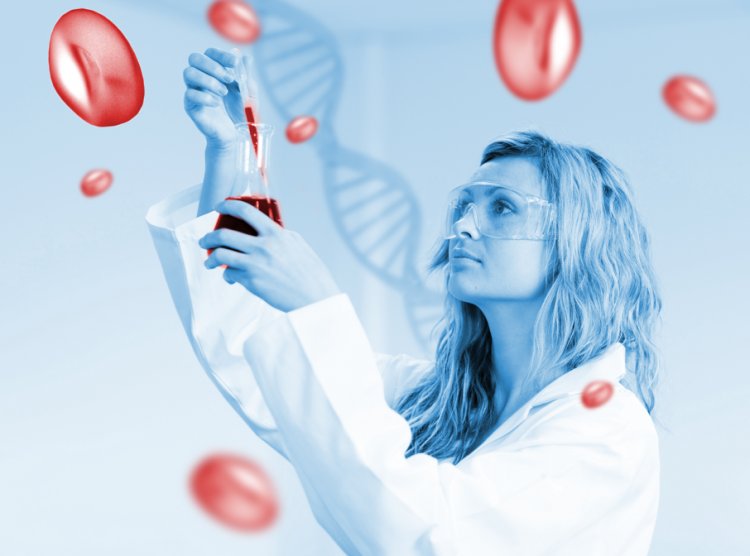Stem Cell Therapies: Pioneering Innovations in Medicine
Stem cell therapies represent a revolutionary frontier in medical science, offering promising avenues for the treatment of a wide array of diseases and injuries. Stem cells, characterized by their unique ability to differentiate into various cell types, hold immense potential for regenerating damaged tissues and organs, as well as for understanding fundamental mechanisms underlying development and disease. Over the past few decades, research in stem cell biology has made significant strides, leading to the development of diverse therapeutic strategies and applications. In this article, we delve into the intricacies of stem cell therapies, exploring their mechanisms, current applications, challenges, and future prospects.

Types of Stem Cells
Stem cells are broadly categorized into two main types: embryonic stem cells (ESCs) and adult stem cells.
Embryonic Stem Cells (ESCs)
These cells are derived from the inner cell mass of blastocysts, which are early-stage embryos. ESCs are pluripotent, meaning they have the capacity to differentiate into any cell type in the body. This remarkable plasticity makes them invaluable for regenerative medicine research and potential therapeutic applications. However, their use is ethically controversial due to the destruction of human embryos required for their extraction.
Adult Stem Cells
Also known as somatic or tissue-specific stem cells, these are undifferentiated cells found in various tissues and organs throughout the body. Unlike ESCs, adult stem cells are multipotent or sometimes oligopotent, meaning they can differentiate into a limited range of cell types. Adult stem cells play crucial roles in tissue homeostasis, repair, and regeneration. They are less controversial ethically since they can be obtained from adult tissues without harm to the donor.
Induced Pluripotent Stem Cells (iPSCs)
iPSCs are a recent innovation in stem cell research. They are generated by reprogramming adult somatic cells, such as skin cells, into a pluripotent state similar to that of ESCs. This breakthrough circumvents the ethical concerns associated with ESCs and allows for the generation of patient-specific stem cell lines for potential personalized therapies.
Mechanisms of Action
Stem cell therapies exert their effects through various mechanisms, including:
- Differentiation: Stem cells can differentiate into specialized cell types to replace damaged or dysfunctional cells within tissues or organs.
- Paracrine Effects: Stem cells secrete bioactive molecules such as growth factors, cytokines, and extracellular vesicles, which modulate the microenvironment, promote tissue repair, reduce inflammation, and stimulate endogenous regenerative processes.
- Immunomodulation: Stem cells possess immunomodulatory properties, modulating immune responses by suppressing inflammatory reactions, promoting tissue tolerance, and regulating immune cell function. This makes them potentially valuable for treating autoimmune diseases and inflammatory conditions.
- Trophic Support: Stem cells provide trophic support to surrounding cells by supplying nutrients, promoting cell survival, and enhancing tissue viability.
Current Applications
Stem cell therapies hold promise for treating a wide range of diseases and conditions, including but not limited to:
- Neurodegenerative disorders (e.g., Parkinson's disease, Alzheimer's disease)
- Cardiovascular diseases (e.g., myocardial infarction, heart failure)
- Orthopedic injuries (e.g., bone fractures, cartilage defects)
- Autoimmune diseases (e.g., multiple sclerosis, rheumatoid arthritis)
- Diabetes mellitus
- Spinal cord injuries
- Liver diseases
Clinical trials are ongoing to assess the safety and efficacy of stem cell-based interventions across these and other medical indications.
Challenges and Considerations
Despite their potential, stem cell therapies face several challenges and considerations:
- Safety Concerns: Ensuring the safety of stem cell therapies remains a paramount concern, including the risk of tumorigenesis, immunogenicity, and ectopic tissue formation.
- Ethical and Legal Issues: The use of embryonic stem cells raises ethical dilemmas related to the destruction of embryos. Additionally, regulatory frameworks governing stem cell research and clinical applications vary between countries and regions.
- Standardization and Quality Control: Standardizing protocols for stem cell isolation, expansion, differentiation, and administration is essential to ensure reproducibility, consistency, and safety across different therapeutic contexts.
- Long-Term Efficacy: Long-term follow-up studies are needed to assess the durability and sustainability of therapeutic responses, as well as potential adverse effects associated with stem cell treatments.
Future Directions
Continued research efforts aim to address existing challenges and expand the therapeutic potential of stem cell therapies. Future directions include:
- Advancements in stem cell biology and technology, such as improved cell reprogramming techniques, gene editing tools, and biomaterial-based delivery systems.
- Integration of stem cell therapies with other treatment modalities, including gene therapy, tissue engineering, and immunotherapy, to enhance therapeutic outcomes.
- Development of personalized medicine approaches using patient-specific stem cell lines and precision medicine strategies.
- Exploration of novel stem cell sources and niche environments, including perinatal tissues, induced organoids, and bioengineered microenvironments, to optimize stem cell function and therapeutic efficacy.
In conclusion, stem cell therapies represent a transformative frontier in medicine, offering unprecedented opportunities to address unmet medical needs and revolutionize patient care. However, realizing the full potential of stem cell-based interventions requires rigorous scientific investigation, ethical considerations, regulatory oversight, and collaborative efforts across multidisciplinary fields.
Discover Coupoly's exclusive Medical Concierge Service, connecting you with renowned doctors and clinics, whether in the UK or abroad.
Get in Touch
Disclaimer:
The information provided in this article is for educational purposes only and should not be considered medical advice. If you have any health concerns or are experiencing symptoms, it is important to consult with a healthcare professional, such as a doctor or clinic, for proper diagnosis and treatment. Always seek the advice of your doctor or other qualified health provider with any questions you may have regarding a medical condition. Do not disregard professional medical advice or delay in seeking it because of something you have read in this article.
What's Your Reaction?





















